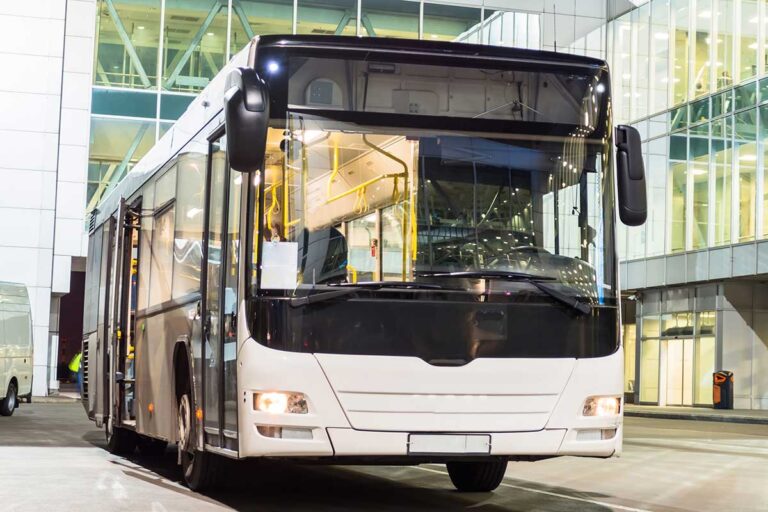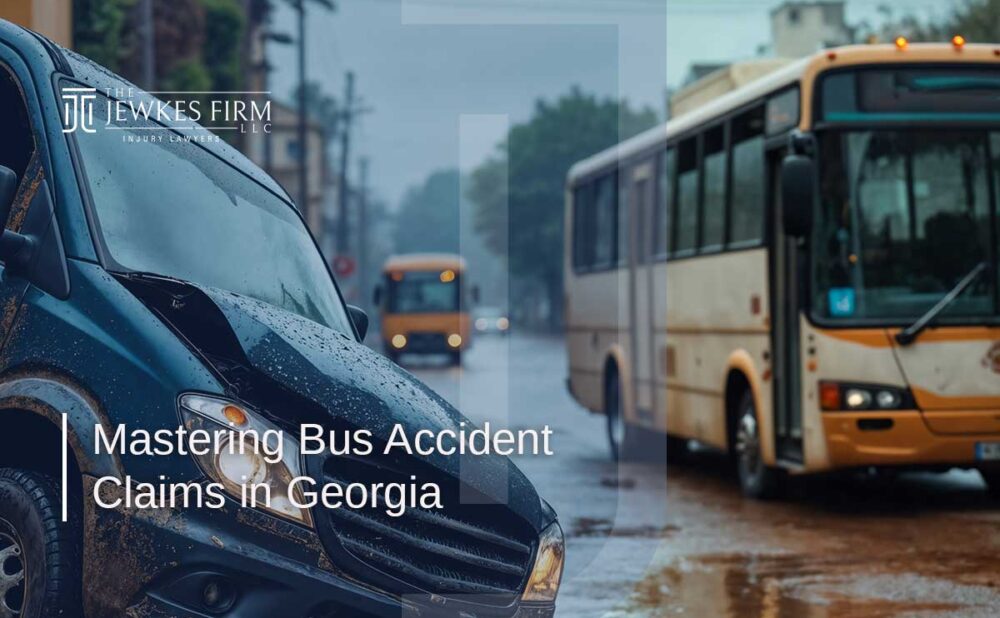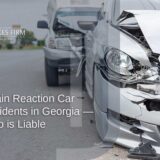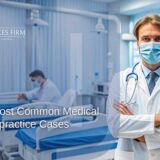Mastering Bus Accident Claims in Georgia — A Comprehensive Guide to Insurance and Legal Challenges
Bus accidents can lead to severe injuries and significant property damage, making it essential for victims to understand their rights and the complexities of insurance claims in Georgia. Whether involving public transit, private charters, or school buses, these incidents often create complicated legal and insurance scenarios.
In Georgia, the legal framework governing bus accidents is intricate, shaped by state laws and the specifics of each case. Victims may contend not only with the physical and emotional aftermath of an accident but also with the challenging task of navigating the insurance landscape to secure the compensation they deserve.
This article provides a comprehensive overview of how insurance works in bus accident claims in Georgia. Our goal is to help victims and their families understand their options and the steps they need to take following an accident. By demystifying the claims process and outlining the essential components of insurance coverage, we hope to empower those impacted by bus accidents to make informed decisions as they pursue justice and recovery.
Understanding Insurance Basics
When it comes to bus accident claims in Georgia, grasping the intricacies of insurance is crucial for victims seeking compensation for their injuries. This section explores the different types of insurance coverage available, the role of liability insurance, and the importance of uninsured and underinsured motorist coverage in the context of bus accidents.
Types of Insurance Coverage
In Georgia, several types of insurance coverage can come into play following a bus accident. The most common forms include:
- Liability Insurance. This mandatory insurance for all drivers in Georgia, including bus operators, covers damages to other parties when the insured driver is at fault. In the case of a bus accident, this can include medical expenses, property damage, and other related costs incurred by injured passengers or other road users.
- Personal Injury Protection (PIP). While not mandatory in Georgia, PIP provides coverage for medical expenses and lost wages, regardless of fault. This can be beneficial in bus accidents where injuries may be extensive and require immediate medical attention.
- Collision Coverage. This insurance helps pay for repairs to the bus itself after an accident, irrespective of who is responsible. Though primarily aimed at commercial buses, this coverage can also affect claims related to the bus’s operational status following an accident.
- Comprehensive Insurance. This coverage protects against non-collision-related incidents, such as theft or natural disasters. While not directly relevant to accident claims, maintaining comprehensive insurance can ensure that the bus service remains operational after unforeseen events.
Role of Liability Insurance
Liability insurance is pivotal in bus accident claims. In Georgia, all bus operators must carry a minimum amount of liability coverage to operate legally. This insurance protects both the bus company and the passengers in the event of an accident. When a bus driver is found to be at fault, liability insurance typically covers the medical expenses, lost wages, and other damages incurred by injured parties.
In cases where the bus operator is a government entity, such as a public transit system, the rules may differ slightly. Government buses might have sovereign immunity protections, complicating the claims process. Nonetheless, liability insurance remains essential for covering damages and facilitating settlements.
Importance of Uninsured/Underinsured Motorist Coverage
Uninsured and underinsured motorist (UM/UIM) coverage is particularly important in Georgia, where not all drivers carry sufficient insurance. If you’re involved in a bus accident caused by a driver who lacks insurance or has inadequate coverage, UM/UIM insurance can help fill the financial gap. This type of coverage allows victims to pursue compensation from their own insurance policy, ensuring they are not left to bear the financial burden of medical bills and other expenses.
In Georgia, while UM/UIM coverage is not mandatory, it is highly recommended. Victims of bus accidents should consider adding this coverage to their policy to safeguard against potential financial losses stemming from accidents involving uninsured or underinsured drivers.
In summary, understanding the different types of insurance and their roles in bus accident claims is essential for navigating the claims process effectively. Familiarity with liability insurance and the importance of UM/UIM coverage can significantly impact the compensation a victim receives after an accident.
Injured in a Bus Accident? Contact Us For A Free Consultation
Injured in a Bus Accident?

The Claims Process After a Bus Accident
Experiencing a bus accident can be traumatic, and navigating the aftermath can be overwhelming. Understanding the claims process is essential for ensuring that victims receive the compensation they deserve. Below, we outline the critical steps involved in the claims process following a bus accident in Georgia.
Steps to Take After an Accident
Immediately following a bus accident, the first priority should be the safety and well-being of all individuals involved. Here are crucial steps to take:
- Seek Medical Attention. Your health is paramount. Even if injuries seem minor, it is essential to consult a medical professional, as some injuries may not be immediately apparent.
- Remain at the Scene. It is important to stay at the accident scene. Exchange information with the bus driver, other passengers, and any witnesses. Gather names, contact numbers, and insurance information.
- Document the Accident. Use your smartphone or a camera to take photos of the accident scene, vehicle positions, damage, and any visible injuries. This evidence can greatly strengthen your claim.
- File a Police Report. Contact law enforcement to report the accident. A police report can serve as an official record of the incident and may include important details regarding fault and witness statements.
- Notify Your Insurance Company. Report the accident to your insurer as soon as possible. Provide them with the necessary information to begin the claims process.
Filing a Claim with the Insurance Company
Once you have taken the initial steps, it is time to file a claim with the relevant insurance company. This process typically involves:
- Gathering Documentation. Compile all necessary documents, including medical records, accident reports, and photographs. This evidence supports your claim and demonstrates the extent of your injuries and damages.
- Completing the Claims Form. Fill out the insurance claims form accurately. Be honest and thorough, providing all requested information to avoid delays.
- Submitting Your Claim. After completing the forms and gathering supporting documentation, submit your claim to the insurance company. Retain copies of all documents for your records.
- Communicating with the Insurance Adjuster. An insurance adjuster will review your documentation, investigate the accident, and may contact you for additional information. It’s crucial to communicate clearly and provide any requested documents promptly.
Negotiating a Settlement
After your claim has been filed, the insurance company will evaluate it and may make an initial settlement offer. Here’s how to navigate the negotiation phase:
- Evaluate the Offer. Assess the insurance company’s settlement offer carefully. Consider whether it adequately covers your medical expenses, lost wages, pain and suffering, and other damages.
- Counteroffer. If the initial offer does not meet your needs, you have the right to negotiate. Prepare a counteroffer backed by evidence, including medical bills, repair estimates, and other related costs.
- Stay Patient. Negotiations can take time. Be patient but persistent, and do not rush into accepting a settlement that does not fully compensate you for your losses.
- Consider Legal Representation. If negotiations stall or the insurance company refuses to provide a fair settlement, consider seeking help from a personal injury attorney. A lawyer experienced in bus accident claims can advocate on your behalf and help ensure you receive the compensation you deserve.
Navigating the claims process after a bus accident can be complex, but understanding these steps can empower you to take control of your situation and work toward a fair resolution. The next section explores the legal considerations that impact bus accident claims in Georgia, including the statute of limitations and the necessity of proving negligence.

Legal Considerations in Bus Accident Claims
When pursuing a bus accident claim in Georgia, it is essential to understand the legal framework that governs these cases. Several key factors can influence the outcome of your claim, including the statute of limitations, the need to prove negligence, and the role of a personal injury lawyer.
Statute of Limitations in Georgia
In Georgia, the timeframe to file personal injury claims, including those resulting from bus accidents, is generally two years from the incident date. This means that you have a limited window of time to file your claim in court. If you fail to initiate legal action within this timeframe, you may lose your right to seek compensation for your injuries and damages. It is crucial to be aware of this deadline and act promptly to protect your rights.
Proving Negligence in Bus Accidents
To successfully secure compensation for your injuries after a bus accident, you must demonstrate that the bus driver or another party was negligent. Negligence refers to the lack of reasonable care that leads to injury or damage to another individual. In bus accident cases, several factors can establish negligence, including:
- Traffic Violations. If the bus driver violated traffic laws, such as running a red light or failing to yield, it could be evidence of negligence.
- Distracted Driving. If the driver was texting, using a mobile phone, or engaging in other distracting behaviors at the time of the accident, this could also constitute negligence.
- Driver Fatigue. Bus drivers must adhere to strict regulations regarding driving hours. Exceed these limits may result in negligence if an accident occurs.
- Improper Maintenance. If the bus company failed to maintain the vehicle properly, leading to mechanical issues that contributed to the accident, this may reflect negligence on their part.
To prove negligence, you will need to gather evidence, such as police reports, eyewitness statements, and expert testimony, to support your claim.
The Role of a Personal Injury Lawyer
Navigating the complexities of a bus accident claim can be challenging, especially when dealing with insurance companies and legal procedures. A personal injury lawyer specializing in bus accident claims can provide invaluable assistance in several ways:
- Case Evaluation. A knowledgeable lawyer can assess the specifics of your case, determine liability, and identify potential sources of compensation.
- Gathering Evidence. Your lawyer will help collect and analyze the necessary evidence to support your claim, including medical records, accident reports, and witness testimonies.
- Negotiating with Insurance Companies. Insurance companies often attempt to minimize payouts. An experienced attorney can negotiate on your behalf to ensure you receive a fair settlement that accurately reflects the extent of your injuries and damages.
- Representation in Court. If a fair settlement cannot be reached, your lawyer can represent you in court, advocating for your rights and arguing your case before a judge and jury.
By understanding the legal considerations involved in bus accident claims and enlisting the help of a skilled personal injury lawyer, you can significantly enhance your chances of obtaining the compensation you deserve.

GEORGIA PERSONAL INJURY LAWYER NEAR ME
Contact a Bus Accident Lawyer Today
Navigating the complexities of bus accident claims in Georgia can be daunting, especially when dealing with the aftermath of an accident. Understanding how insurance works in these situations is crucial for victims seeking compensation for their injuries and damages. From the types of insurance coverage available to the intricacies of filing a claim, each step plays a vital role in the recovery process.
In Georgia, the legal landscape surrounding bus accidents is shaped by state laws and regulations, making it essential for victims to be aware of their rights and options. With the possibility of dealing with multiple insurance providers and the necessity of proving negligence, having a thorough grasp of the claims process is indispensable.
At The Jewkes Firm, we recognize the challenges faced by individuals involved in bus accidents. Our experienced team will guide clients through each stage of their claims, ensuring that they receive the support they need. We advocate for your rights and maximizing your compensation, allowing you to focus on your recovery.
If you or a loved one has been involved in a bus accident, don’t navigate this complex journey alone. Contact The Jewkes Firm today at (770) 771-5130 for a consultation, and let us help you secure the justice you deserve.
Frequently Asked Questions
Who can be held liable in a Georgia bus accident case?
Liability may fall on the bus driver, the bus company, vehicle manufacturers, or even government entities if the bus is publicly operated. Determining fault requires a thorough investigation of the accident circumstances and applicable Georgia laws.
How does Georgia’s comparative negligence law affect my bus accident claim?
Georgia follows a modified comparative negligence rule, meaning you can recover damages only if you are less than 50% at fault. Your compensation may be diminished based on your share of responsibility for the accident.
How are bus accident claims different from car accident claims in Georgia?
Bus accident claims often involve multiple parties, including government agencies or large corporations, and may be subject to different insurance policies and liability rules. This complexity makes legal guidance essential.
What insurance coverage applies to bus accidents in Georgia?
Bus companies typically carry commercial auto insurance, which may include liability coverage, uninsured/underinsured motorist coverage, and workers’ compensation for injured employees. Understanding these policies is key to maximizing your claim.
Can I file a claim if the bus driver was an employee of a government agency?
Yes, but claims against government entities may require filing a notice of claim within a specific timeframe and may be subject to different legal procedures and caps on damages.
How can I prove negligence in a Georgia bus accident case?
Proving negligence involves showing that the bus driver or company owed a duty of care, breached that duty, and caused your injuries as a direct result. Evidence such as police reports, witness accounts, and expert analysis can bolster your case.





